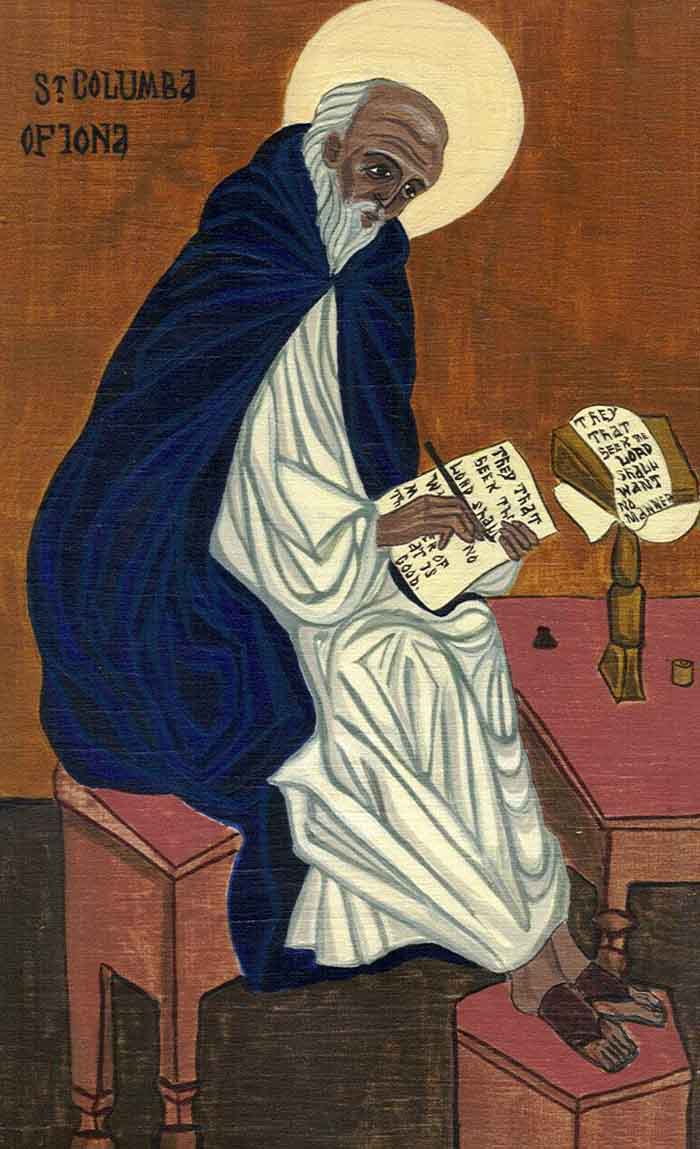+
Is Contemporary English a fit language for the worship of God? English as spoken today is the language of politicians, newsreaders, radio hosts, newspapers, advertisers ... it is a language of lies for the telling of lies. Is it possible to write liturgical prayers in contemporary English or some form mid-way between contemporary and Tudor? Yes. But it requires both the greatest care and a clear understanding that it is a missionary concern and not a matter of formation of the standard sacred liturgical rite.
As a missionary concern such carefully crafted English intends to serve those who do not have English as a mother tongue or do not have the cultural or educational background to fully participate in the sacred English of the Anglican tradition. It must never, never become the substitute for the liturgical order itself or else it runs the risk of being a lap-dog to the dominant culture instead of a Holy Calling to the divine life of Him who rescues us from the purgatory and hell of the mundane.
Anglican traditional liturgical English has the salutary benefit of taking us out of the mundane into a different way of thinking and relating. It is not removed from us and our experience. We bring it into the most crucial moments of our lives whenever the King James version of Psalm 23 is read or said together at a service. It is this language that echoes from our hearts in our own words in times of deepest pain and profound joy. Remembering Job in the Authorised Version of King James we often say "The Lord giveth, and the Lord taketh away. Blessed be the Name of the Lord." In the American South the language of the King James Bible permeates the culture in the countryside even to this day.
Not surprisingly the beautiful language of the traditional Book of Common Prayer is often quoted without knowing its origin. Ministers bring in bits and pieces into their Protestant services. Some of the great hymns translated into this sacred English continue to be sung by many regardless of their Church affiliation. Let us consider this passage from The Book of Common Prayer, 1662, surely one of the most beautiful and humble in what some call "sacred English":
Dearly beloved brethren, the Scripture moveth us in sundry places to acknowledge and confess our manifold sins and wickedness; and that we should not dissemble nor cloak them before the face of almighty God our heavenly Father; but confess them with an humble, lowly, penitent and obedient heart; to the end that we may obtain forgiveness of the same by his infinite goodness and mercy..
And although we ought at all times humbly to acknowledge our sins before God; yet ought we most chiefly so to do, when we assemble and meet together to render thanks for the great benefits that we have received at his hands, to set forth his most worthy praise, to hear his most holy word, and to ask those things which are requisite and necessary, as well for the body as the soul..
Wherefore I pray and beseech you, as many as are here present, to accompany me with a pure heart, and humble voice, unto the throne of the heavenly grace, saying after me:.
ALMIGHTY and most merciful Father; We have erred, and strayed from thy ways like lost sheep. We have followed too much the devices and desires of our own hearts. We have offended against thy holy laws. We have left undone those things which we ought to have done; And we have done those things which we ought not to have done; And there is no health in us. But thou, O Lord, have mercy upon us, miserable offenders. Spare thou them, O God, who confess their faults. Restore thou them that are penitent; According to thy promises declared unto mankind in Christ Jesu our Lord. And grant, O most merciful Father, for his sake; That we may hereafter live a godly, righteous, and sober life, To the glory of thy holy Name. Amen.
The Book of Common Prayer; from the Order for Morning Prayer, 1662
+We beseech thee to hear us, good Lord.
















